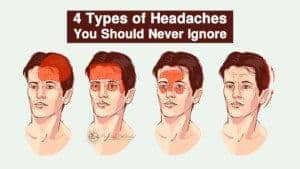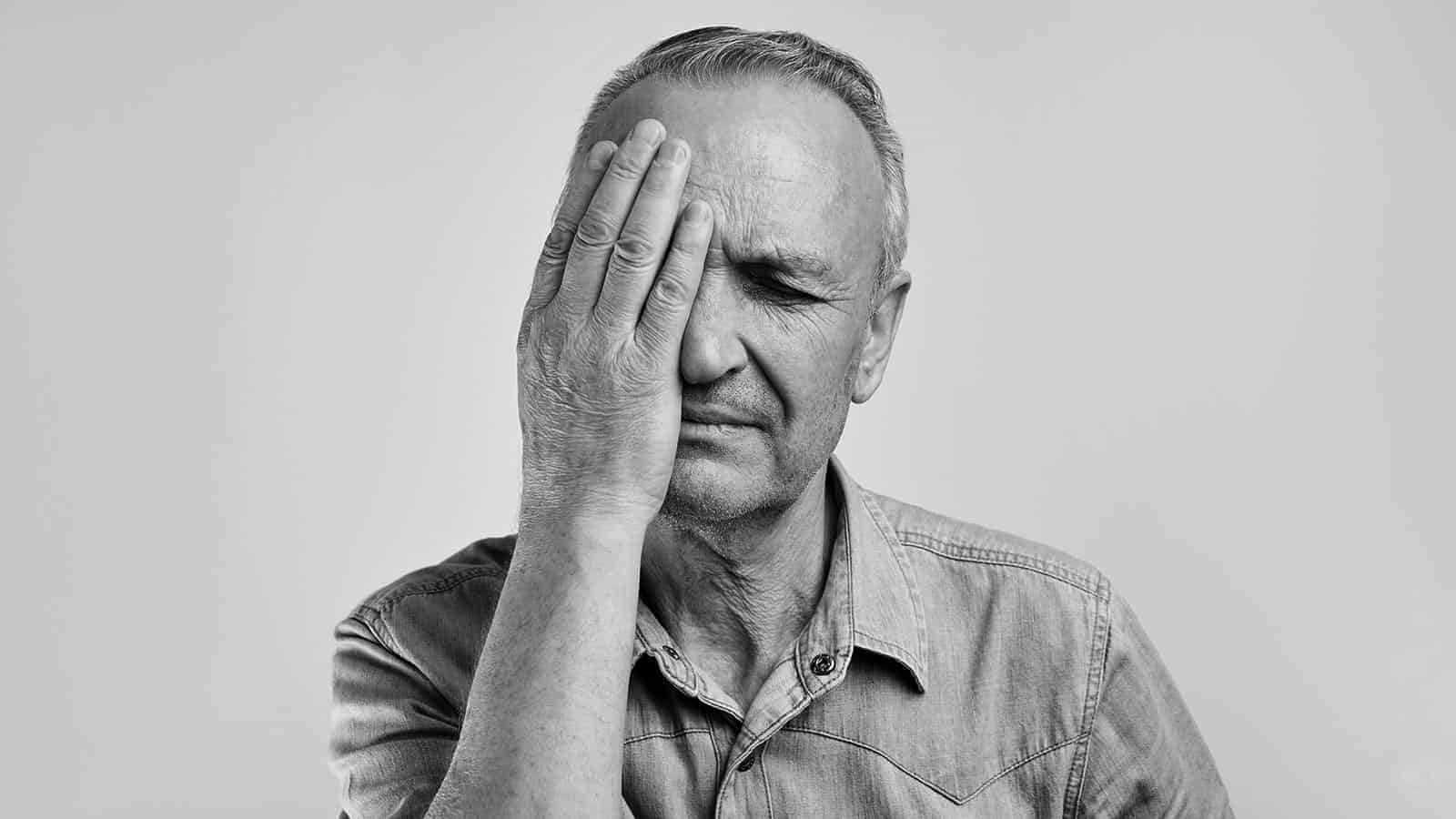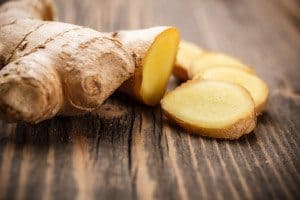Cluster headaches are uncommon and short but severely painful headaches that occur every day for an extended period of time. This time period could be a couple of weeks, but it could go on for as long as a month. They are thought to be related to the seasons as those who suffer from them report them during the same time frame each year.
While many may know what these headaches are, fewer know what causes them. Neurologists have worked for many years to determine the exact cause and have narrowed it down to a nerve in the face that causes extreme pain around one eye.
While the cause has been linked to that facial nerve, there are more causes than just that alone. Certain events can trigger cluster headaches. So knowing the causes can help prevent them or ease the pain in the future. Before discussing the causes, however, it is important to narrow down the symptoms so you know for sure that cluster headaches are the problem.
Symptoms of a Cluster Headache
The symptoms of these headaches are unique and are very different from headaches caused by tumors or blood clots. These symptoms include:
- pain so intense that it is difficult to do anything except pace
- full force pain within 5-10 minutes of onset
- one-sided
- burning or piercing sensation
- pain starts near one eye and spreads to the forehead, temple, nose, cheek, or gum
- feeling your blood pulse
- short duration (normally 30-90 minutes but can be anywhere from 15 minutes to 3 hours)
- they happen around the same time each day
- occur daily for a time period of two weeks to three months
- swollen eye
- smaller pupil in the affected eye
- eye redness and/or watering
- congested or runny nose
- warm, red face
- sweating
- light sensitivity
A Neurologist Explains Further
Neurologists say those cluster headaches are caused by your blood vessels widening. This widening causes pressure on the trigeminal nerve, which is the nerve that transmits feeling from the face to the brain.
It is believed that this occurs due to abnormalities in your hypothalamus. To explain further, the hypothalamus is an area of your brain that regulates body temperature, sleep, hormone release, and sleep.
Another reason for cluster headaches–the release of histamine, the chemical that fights allergens. Additionally, the release of serotonin can cause cluster headaches, which is the chemical that regulates your mood.
There are daily events that could cause a headache during a series of them. A simple lifestyle change could help control them.
The Causes of Cluster Headaches
1. Cigarette smoke
An interesting fact is that more than 80% of those who suffer from these headaches have been long-term tobacco smokers. This makes you wonder if there is some type of connection between tobacco and these headaches aside from just triggering them but so far, it has not been determined that it is the ultimate cause. Additionally, many of those who suffer from headaches and are not smokers themselves reporting having had parents who smoked cigarettes around them when they were younger.
Cigarette smoke is known to increase carbon monoxide levels in your body and you receive less oxygen when smoking. Both of these problems can trigger headaches.
2. Alcohol
Skipping any type of alcohol including beer and wine is wise when you are suffering from a series of these headaches. Just a small drink can trigger a headache. Having a drink or two when you aren’t having a cluster series is normally fine, however.
3. Strong smells
Strong scents including cologne and perfume cause your blood vessels to dilate. This could bring on a cluster headache during a series.
4. Irregular sleep schedule
By keeping a regular sleep schedule, you may be able to avoid some of the headaches from coming on. Even a small change in your sleep schedule can bring on a cluster headache. A big change in your schedule, however, is likely to bring on a severe one.
5. Allergens
These headaches are caused by allergens because the chemical histamine is released when fighting allergens.
6. Stress
When you are stressed, your body released the chemical serotonin, which is known to cause one of these headaches.
7. Sex hormones
These types of headaches are more common in men. They seem to be triggered more often when a man’s testosterone levels drop abnormally low.
8. Strenuous activities
Weight lifting and other strenuous activities can trigger a cluster headache when you’ve been having a series of them. This is because it causes the blood vessels to dilate. Surprisingly, strenuous activities can even cause the blood vessels to burst if you do too much.
9. High altitudes
A change in altitude may affect cerebral blood flow which can cause dilation of blood vessels. Higher altitudes also mean less oxygen, so that could play a part in a headache, as well.
10. Foods with large amounts of nitrates
These foods include bacon, hot dogs and lunch meats. Too many nitrates can cause blood vessels to dilate.
11. Hot baths
It has been proven that increased body heat can trigger a cluster headache. This rise in body heat can occur due to a hot bath, home heating or from the environment. Anytime that your body heat rises quickly, within an hour or so, it can trigger a cluster headache.
When to See a Doctor
While you can try to avoid the previously discussed causes of a cluster headache, it is still always important to seek the care of a neurologist. There are treatment and preventative options available, and a doctor will want to run tests to check on the reflexes and nerves. They will also want to check for tumors or aneurysm, just to be safe.
After the initial diagnosis and health checks, you will likely only need to see your doctor about the headaches if they become so problematic to you that you would like a treatment or preventative. Other times you would need to see your doctor include:
- If the pattern of your headaches change
- The headaches feel different
- An abrupt and severe headache sets in
- You get a fever and begin vomiting or experiencing nausea during a cluster headache
- You have a stiff neck, mental confusion, a seizure, numbness or trouble speaking
- Your headache begins after a head injury, no matter how minor
Five Ways to Prevent or Stop a Cluster Headache
There are several treatment options for a cluster headache. The options include:
1 – Ginger tea
Ginger naturally helps to alleviate headache pain. Make a steamy cup of ginger tea and sip away the pain.
2 – Capsaicin cream
Capsaicin, a topical cream, warms the skin to the touch. The gentle heat will help remedy your headache. However, take care not to apply near the eyes.
3 – Deep breathing
Mastering the science of deep breathing is essential to your well-being. And, if you suffer from cluster headaches, it’s a mush-have trick to keep up your sleeve. This technique will deliver vital oxygen into your blood and brain to help deliver the pain relief you crave.
4 – Peppermint essential oil
Mix two to three drops of peppermint essential oil to a carrier oil, such as rosehip seed oil or sunflower oil. Massage the mixture lightly into your temples and the site of your discomfort for relief.
5 – Light exercise
When you are struggling through a cluster headache exercise might be the furthest thing from your mind. But it’s worth powering through your pain for a light walk or a 15-minute easy yoga session. You’ll get the blood and oxygen flowing and feel better afterward.
 Final Thoughts on Pinpointing the Causes of Cluster Headaches
Final Thoughts on Pinpointing the Causes of Cluster Headaches
Cluster headaches can be unpredictable and debilitating, but knowing what triggers them can allow you to somewhat control the frequency and the severity of them. While nothing will stop them forever, knowing what causes them may help you handle them better.
If nothing helps, you may have to seek the help of a neurologist for medication to prevent and lessen the pain. Neurologists have been studying the headaches for years and are still trying to learn more about them.
All that you can do is follow professional advice and work to avoid triggers, while also working to determine what time of year headaches occur. Once you learn when they usually occur for you, you will know when to have medication ready and available or when you should try to stay home in case one happens.














 Community
Community

